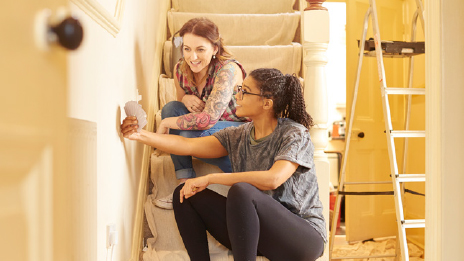How to develop better habits early on
Did you know that kids as young as three are able to grasp the core concepts of saving and spending? By the age of seven we’ve already started forming money habits.
“So where do I start?” you ask. Here are some tips to get the conversation started in your household.
Keep it simple
Trying to educate your kids about money through a one-hour lecture on everything from credit cards to home loans is likely to overwhelm and bore. Instead, start small.
For the little ones, counting coins or playing store at home, are micro ways to expose their brains and fire their imaginations with the broad notion of exchange and money – this for that – cause and effect.
Then when they’re a bit older…
Money and limits
One way you can introduce your kids to the important concept of money exchange is by doing a small grocery shop – online or in person – and work to a set amount of money and a short list of items.
Once you reach the limit it’s time to make decisions about what we keep and what we have to put back. This is a good way to demonstrate the complex concept of cause and effect in relation to money and the simple fact that things cost money.
(The practical aspect of the demonstration will have the added impact of real outcome when you get to take the shopping home, or when it arrives at your door).
Open a bank account for your child
Your child can have a bank account form birth, which not only familiarises them with the concept of money, but also allows a space for them to see their money grow.
Pocket money
Understanding the value of a dollar by earning it, is one of the best ways for kids to become acquainted with money.
So the next time your child asks you for the latest shiny thing they desperately want, give them a list of chores with set values and let them earn it. This way they will start to learn the satisfaction associated with working towards a financial goal and achieving it.
Depending on your child’s age and your circumstances this item could be relatively small or quite significant (Beyblade/smartphone cover/smartphone – this lesson has flexibility) and could last weeks or months.
Offer rewards for reaching their goals
For more significant goals, to keep them motivated, try giving them special rewards along the way. For instance, once they reach halfway you might offer to cook their favourite meal (curried sausages, thanks for asking!) or allow them extra time on their favourite game or device.
Be open with your children
A great principle for life, but especially when it comes to teaching them about money.
Are you currently saving for a big purchase, like a car or perhaps a holiday? Be open with your kids and take them along with you on the savings journey.
Creating a budget that you put on the fridge and update regularly the closer you are to your goal.
This way your children will be involved and excited with the challenge of saving (and be doubly appreciative when it comes to reality).
Have fun
What you might have thought was going to be a daunting course of boring talks could turn out to be a really enjoyable experience.
Other stories from the newsletter
Getaway to the Adelaide Hills
Fancy getting away for a short break? We’re shining a light on towns and regions welcoming visitors back to their communities. First up is the Adelaide Hills – plug it into your itinerary!
Financial wellbeing matters
If you’re interested in making the most of your finances, it’s a good idea to take care of your financial wellbeing. How do you do that? Read on for some helpful guidance and suggestions.
Property investment tips
If you’re looking to invest some of your hard-earned funds, an investment property might be just what you’re after. Check out these handy hints to help you take that step into the investor market.




